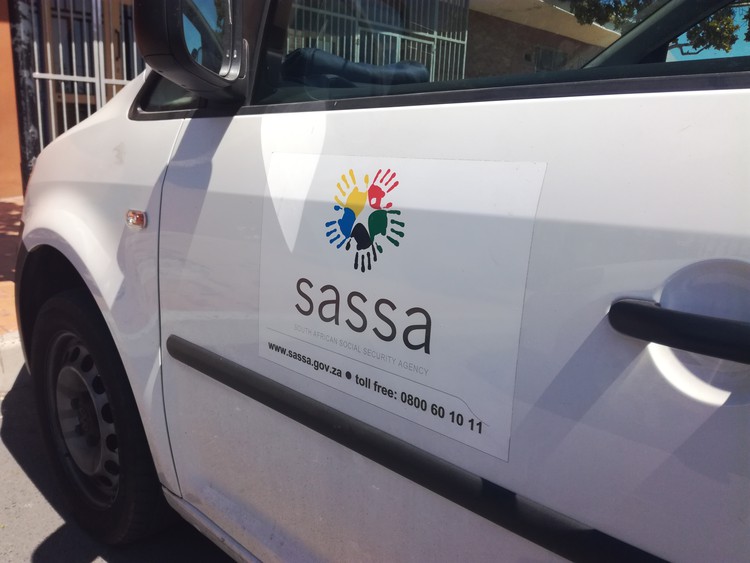Where to get your grant after 1 April
SASSA is negotiating with banks for beneficiaries to get low-cost accounts
As part of its agreement with the post office to pay social grants next year, the South African Social Security Agency (SASSA) has already begun encouraging beneficiaries to get their money through electronic payments.
Last week, Chief Justice Mogoeng Mogoeng ordered SASSA and Social Development Minister Bathabile Dlamini to examine the feasibility of paying social grants through the banking system. This follows recommendations by the Panel of Experts set up by the court to monitor changes to the grant payment system when the current contract expires.
The directive by the Court came a few days after Jeff Radebe, chairperson of the Interministerial Committee (IMC) on Comprehensive Social Security, announced that a deal between SASSA and the Post Office would be finalised by 20 November. The deal was subject to its cost effectiveness.
But Radebe’s office remained silent last week until after SASSA had submitted its report to the Constitutional Court on 7 December. In it the agency gave details of its agreement with the Post Office to pay grants from 1 April next year. This “hybrid payment model” will include SASSA, SAPO, Home Affairs and the State Security Agency, and will be phased in over five years.
Mark Barnes, CEO of the Post Office, on Monday confirmed to News24 that the deal will cost SASSA roughly R2.2 billion per year, an equivalent amount to the CPS contract.
Beneficiaries can get their grants from 1 April 2018
-
through commercial banks (SASSA does not cover bank charges as there is no final agreement with banks yet),
-
in cash at paypoints (this will be phased out eventually),
-
at retailers like Shoprite and Pick n Pay,
-
at Postbank outlets, and
-
at legally registered traders including spaza shops and village banks.
SASSA has promised to give the Court more details about these payment options on 18 December. Meanwhile the Black Sash has cautioned SASSA against rushing to invite beneficiaries to open bank accounts.
In a letter on 10 November 2017, SASSA instructed regional managers “with immediate effect” to notify all new and old beneficiaries of the “easier and more convenient” option to have their grants paid directly into bank accounts. This would be at their own expense for now, the agency said in the letter.
“This is still highly problematic,” said Lynette Maart, director of the Black Sash Trust. She said arrangements about costs and terms had still to be finalised with the banks. Also, she said, the instruction excluded people in rural areas with no access to banks.
“The devil is in the detail,” Maart said. She said the terms and conditions of the accounts should form part of the deal. Maart said grant beneficiaries should get their grants in full and not be saddled with bank charges. “SASSA wants to ultimately get rid of the cash system, so free access to ATMs would be helpful. This needs to resolved. You can’t be telling people to go open accounts and then they are charged,” she said.
In its report to the Constitutional Court on 8 December, SASSA acknowledged that a deal for the low cost banking accounts had not yet been reached with the banks. But, SASSA said, “Of the over 5.3 million beneficiaries who use electronic payment channels, 1.4 million used commercial bank accounts. These bank accounts have been recorded … and beneficiaries have been asked if they wish to continue with this payment channel.”
SASSA also told the Court that it was still not ready to take over the full payment of grants after 31 March 2018. It said that in order to avoid the interruption of payments, SASSA’s “best option” was to sign the agreement with the post office.
SASSA said the partnership with the Post Office would protect the personal information of beneficiaries “from abuse by private sector companies for ambush marketing and deductions the poor cannot afford.”
SASSA also said that beneficiary information will in the future be “consolidated with other state information such as Home Affairs’ national identification system, Human Settlements’ housing subsidies and Transport’s drivers’ licences.”
SASSA said it still planned a competitive bidding process for cash pay points.
Support independent journalism
Donate using Payfast

Don't miss out on the latest news
We respect your privacy, and promise we won't spam you.
Next: Singing for circumcision
Previous: Silicosis: Department of Mineral Resources slams “lawyers who loot”
© 2017 GroundUp. 
This article is licensed under a Creative Commons Attribution-NoDerivatives 4.0 International License.
You may republish this article, so long as you credit the authors and GroundUp, and do not change the text. Please include a link back to the original article.

